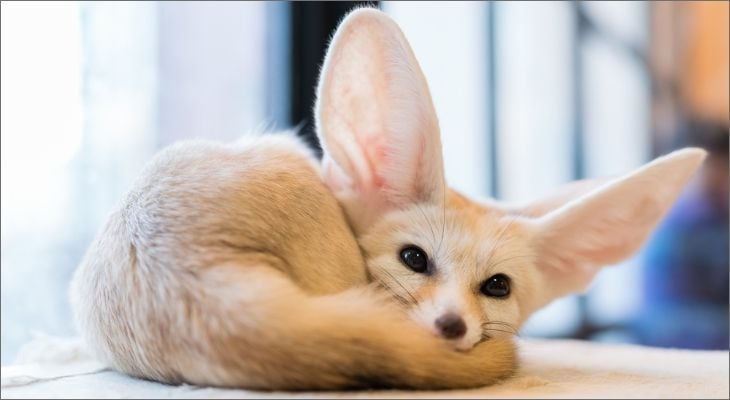Fennec Fox Care Guide
With oversized ears and mischievous faces, fennec foxes are cute as can be. But these exotic pets require a lot of care to stay healthy and happy.
Health
At just three pounds, fennec foxes are the smallest member of the fox family. Native to the Sahara desert, fennec foxes are covered in thick fur that protects them from heat and sand. Since they're built for desert life, fennecs need to live in an environment that's at least 68° F.
Fennec foxes have health needs similar to those of a dog. Routine veterinary care, vaccinations, and flea preventative are requirements. And since the fennec is a wild animal, some vets don't feel comfortable caring for these little guys.
Training
As a wild animal, fennec foxes can't be trained as easily as domesticated pets. However, some owners have successfully house trained their fennecs. Some can be trained to walk on a leash. We recommended lots of praise and treats to encourage these behaviors.
Care
In the wild, fennecs are nocturnal. That means they will be much more active at night. They are naturally inquisitive and can be quite destructive when left unsupervised. A dog crate is a good option to contain nighttime antics, and some fennecs will adapt to their owners' schedules.
If you chose to keep your fox outside, you'll need a way to keep him contained. Fennecs can dig up to 20 feet deep. They're excellent climbers and can jump much higher than their small size suggests. A wired enclosure with a concrete or wood floor is a good option. A layer of sand will help your pet feel more at home. Just make sure the enclosure is large enough for your fennec to run, play and exercise.
Feeding
Fennec foxes are omnivores in the wild. They eat a mixture of meat and plants. Commercial fox food isn't easy for pet owners to come by, most feed their fennecs dog food, cat food, vegetables, and fruits. Take care to ensure your animal gets enough taurin in his diet to support metabolic processes. Be sure to consult with your veterinary care team who will help you determine the best foods for your fennec fox.

